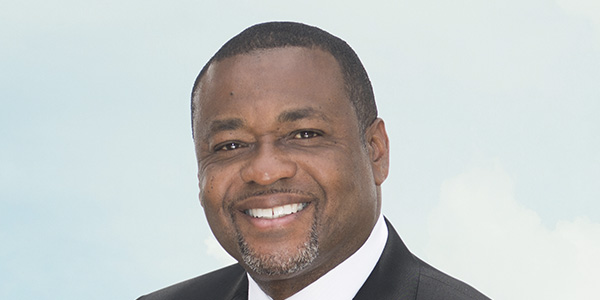Evans eyes ambitious agenda as new CEO of psychological association
Evans eyes ambitious agenda as new CEO of psychological association
- December 1, 2017 |
-
 LORI SHARN BRYANT
LORI SHARN BRYANT

CEO of APA wants to raise visibility of psychologists and what they do

Evans
Arthur Evans became CEO of the American Psychological Association in March with a resume reflecting the diversity of his field—from scientific research to private practice to running a $1.2 billion health care agency.
"In some ways, I think I've been preparing for this job my entire career," Evans said. "I was very intentional about having a broad set of experiences. That fits well for this position. I need to be able to speak to all kinds of people in this discipline."
His challenge now as CEO: Bring all these people together in one professional home following a period of declining membership and organizational soul-searching. Evans also is working to boost the public perception of psychology and how it can help solve real-world problems.
"I want this to be the premier professional scientific association in the country—nothing short of that," Evans said.
Evans admits to a steep learning curve. For the previous 12 years, he was commissioner of Philadelphia's Department of Behavioral Health and Intellectual disAbility Services—an agency with a budget nearly 10 times that of APA, which reported revenue of $130 million in 2015. Evans has a master's degree in experimental psychology and a Ph.D. in clinical/community psychology.
Evans said working in government had its constraints, but the hierarchy was clear. As a political appointee, he reported to the mayor. In an association the size and complexity of APA, he has responsibilities to multiple entities: the 13-member board of directors, the 178-member council of representatives (the APA's highest authority), other governance units and 116,000 members, including students. The association also has more than 500 employees.
He has reached out to CEOs of other scientific and professional societies to learn more about the association world. All have been helpful and supportive, he said.
APA's Interim CEO Cynthia Belar also smoothed his path. Evans said Belar took on the hard issues while constantly thinking about who would be coming after her.
"It was enormously helpful. The board was wise choosing someone like her," Evans said.
As interim CEO, Belar was tapped to lead APA through a time of transition and reckoning. Longtime CEO Norman Anderson retired a year earlier than planned, in 2015, in the wake of an independent investigation into APA ethics guidelines regarding national security interrogations.
The report found that key APA officials had "colluded" with officials at the U.S. Department of Defense in 2005 to craft loose ethical guidelines for military psychologists involved in interrogations. Controversy over those guidelines—and subsequent efforts to change them—roiled the association for more than 10 years.
Following the report, APA adopted a policy to prohibit psychologists from participating in national security interrogations. APA also appointed a special commission to examine all of the association's ethics policies and procedures.
Evans said the "overwhelming majority" of people recognize that the APA had some issues to address, and that now it's time to move the association forward.
"We still have some people who believe there's more work to be done. You really have to balance that with the ability not to be stuck," he said.
Money and members
APA implemented an integrated budget model in 2016 to define APA's sources of income and expenses more clearly. The new budget model revealed that APA was headed for substantial deficits unless cuts and changes were made. The good news is APA started 2017 with a projected deficit of $4.2 million, but will break even for the year, Evans said. He is looking for more ways to reduce costs and to generate revenue.
And a new approach to membership is starting to pay off. APA established its first membership office in 2015, focused on delivering the tools and information psychologists need in their work and careers. APA is projecting a modest increase in the number of paid members this year. (Life status members do not pay dues.)
Evans said many of the areas where APA members work are being disrupted by technology and by changes to the business models for health care and education. Some psychologists—particularly those involved in research rather than clinical practice—have joined more specialized associations rather than APA. Evans aims to bring those scientists back.
APA will sponsor a conference in April to explore technology and human behavior. The first "Technology, Mind and Society" conference will bring together psychological scientists with computer scientists, engineers and other researchers and practitioners.
"Most people don't associate (artificial intelligence) with psychology, but psychology's all through it. People who study how people learn … are psychologists," Evans said.
Evans said he has a "highly unusual" opportunity to shape the organization with key hires. He recently hired a chief communications officer and will fill four more top positions in the upcoming months.
He is also looking to start a strategic planning process in 2018 aimed at building association consensus around certain ideas and principles.
"By the time we get to the end of that process, we should be pretty confident people will say, ‘Yes, I
see what I said in that plan,'" Evans said. "That's the way you're able to move an organization forward with big ideas."
